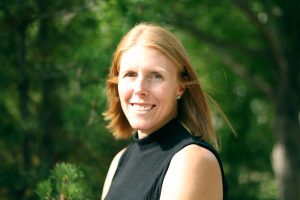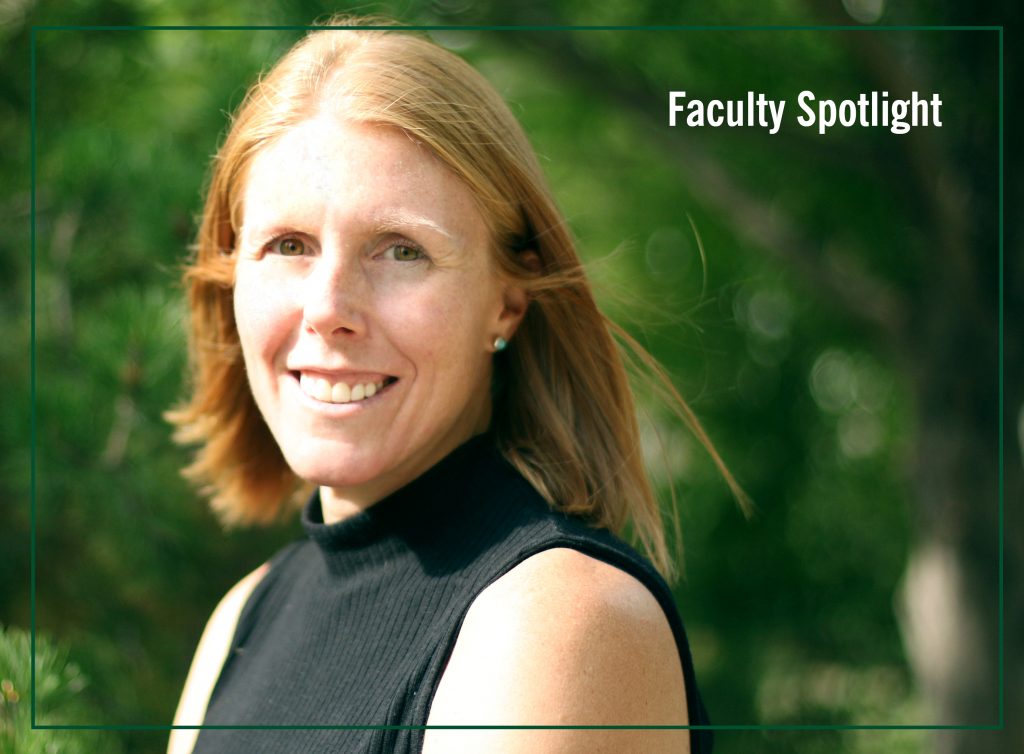
September spotlights continue with today’s spotlight on Dr. Jennifer MacDonald, our new Assistant Professor in Physical Education and Outdoor/Land-Based Education. As a newbie to Saskatchewan, Jennifer has been “learning more about the prairie ecology through walking and watching the sky.” Taking (and enjoying) a Cree language course is also a part of her orientation to living in Saskatchewan.
These Saskatchewan activities reflect Jennifer’s research and educational interests: “My focus is in outdoor and land-based practices with commitments also to Treaty Education. Particularly, in my classes, I endeavour to expand perceptions of wellness so that teaching and learning include the complex ecologies that we are enmeshed in as human beings.”
Ongoing goals for Jennifer include understanding her “role in conversations of truth and reconciliation, and collaborating with others to generate new knowledge and stories that approach place, teaching, learning, relations, wellness, and curriculum differently.” This work is important, says Jennifer, “to increase consideration, discussion, and education to help renew co-existence and restore right relations on shared land.”
As a Canadian of settler descent, Jennifer says, “I endeavour to take seriously guidance from Indigenous mentors who encourage me to proceed in ways that respect treaty wisdom: good relations, peaceful co-existence, and honouring the gifts. Therefore, my research interests are aimed at recognizing and unlearning the ongoing presences of colonialism and Enlightenment-based modes of knowledge and knowing and prioritizes practices to can expand and renew relationships.”
The transformative potential of educational experiences to renew and enhance relationships is the reason behind Jennifer’s passion for education. “As an educator, I am constantly learning to have more trust in the possibilities inherent in kinetic forms of learning, such that the objectives of experiences cannot be fully known in advance and require us to pay attention to the world. In this way, I believe educators and learners can learn about themselves, the stories they are a part of, to understand their relationships more deeply and even differently. Once I starting inquiring into processing of wayfinding with students, all sorts of creative expressions emerged. I am excited by the diversity of knowledge that comes into view when room is created for it and the interconnections that can be drawn through sharing stories. This form of learning gives me hope for a more sustainable and equitable future.”
A highlight in Jennifer’s research was successfully defending her doctoral dissertation in the summer of 2022. In her doctoral research, Jennifer says, “I journeyed alongside secondary school students involved in multi-day wilderness expeditions. I was interested in how students experienced and understood place-specific lifeforms. Simultaneously, as their guide, I wanted to humbly live out holistic relational teachings kindled through visits with nêyihaw Elder Bob Cardinal. Bringing these threads into dialogue helped me to generate insights toward a kinetic process of narrative mapping and to develop principles for wayfinding toward more ethical relationships.” Jennifer is excited to build on this research, inquiring into “how these principles might live in other settings and across disciplines to enliven place-specific ecologies as the living curriculum and to support educators in guiding all students towards life-sustaining relations in everyday contexts.”
Students should consider the Health, Outdoor, and Physical Education (HOPE) course of study “to develop the skills to not only design and facilitate a range of physical activities, but also to understand and enact the holistic potentials of education more broadly and to explore processes of learning that include the life of places we live with,” says Jennifer.
As advice to students, Jennifer says, “It is important to surround yourself by positive people who will push you to be your best. At the same time, seek out others who think differently than you and practice listening to their experiences in the world. Build routines and habits that will allow you to spend time outdoors as much as possible.”
Follow us on social media